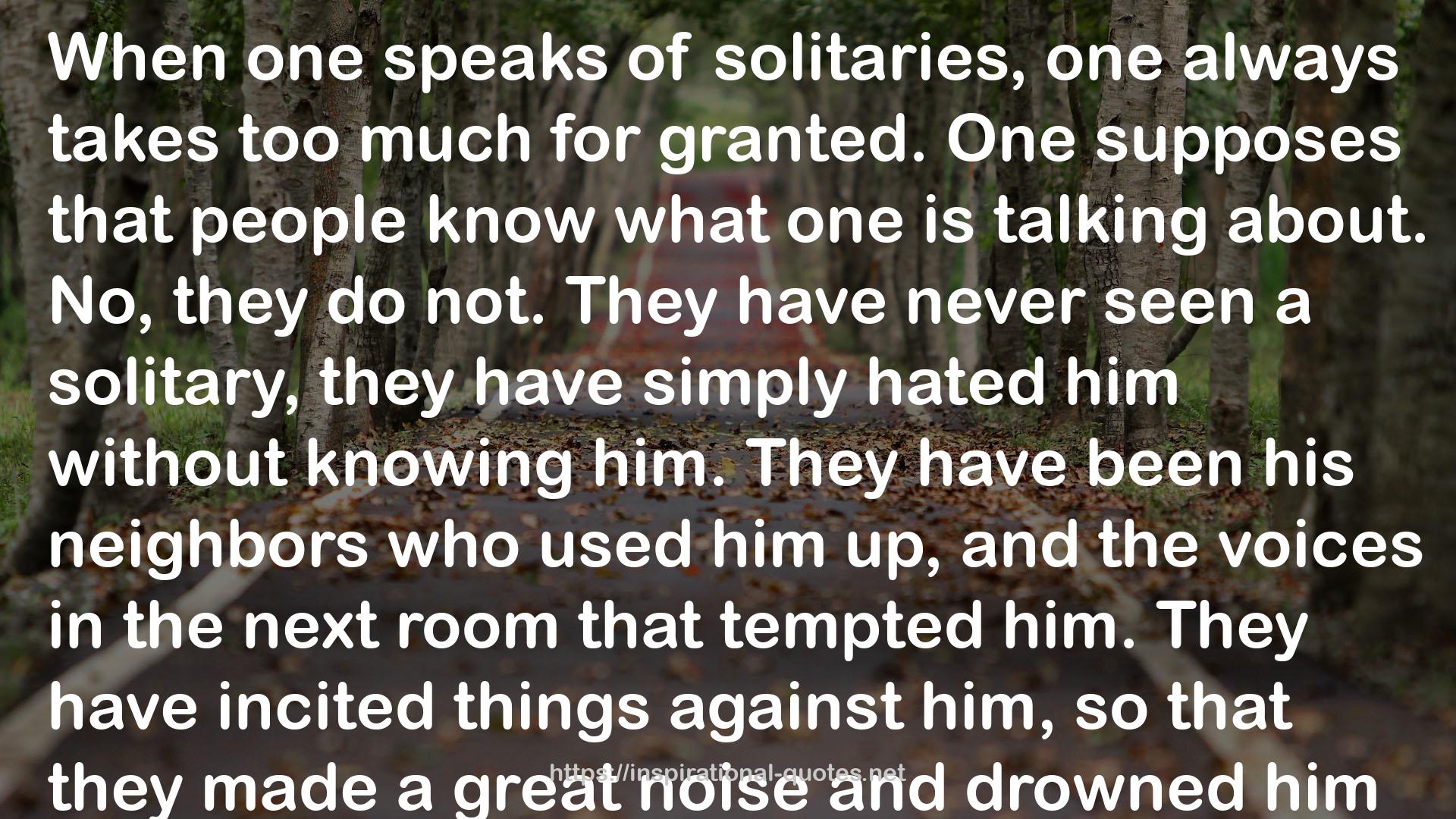" When one speaks of solitaries, one always takes too much for granted. One supposes that people know what one is talking about. No, they do not. They have never seen a solitary, they have simply hated him without knowing him. They have been his neighbors who used him up, and the voices in the next room that tempted him. They have incited things against him, so that they made a great noise and drowned him out. Children were in league against him, when he was tender and a child, and with every growth he grew up against the grown-ups. They tracked him to his hiding place, like a beast to be hunted, and his long youth had no closed season. And when he refused to be worn out and got away, they cried out upon that which emanated from him, and called it ugly and cast suspicion upon it. And when he would not listen, they became more distinct and ate away his food and breathed out his air and spat into his poverty so that it became repugnant to him. They brought down disrepute upon him as upon an infectious person and cast stones at him to make him go away more quickly. And they were right in their ancient instinct: for he was indeed their foe.
But then, when he did not raise his eyes, they began to reflect. They suspected that with all this they had done what he wanted; that they had fortified him in his solitude and helped him to separate himself from them for ever. And now they changed about and, resorting to the final, the extreme, used that other resistance: fame. And at this clamor almost every one has looked up and been distracted. "
― Rainer Maria Rilke , The Notebooks of Malte Laurids Brigge
